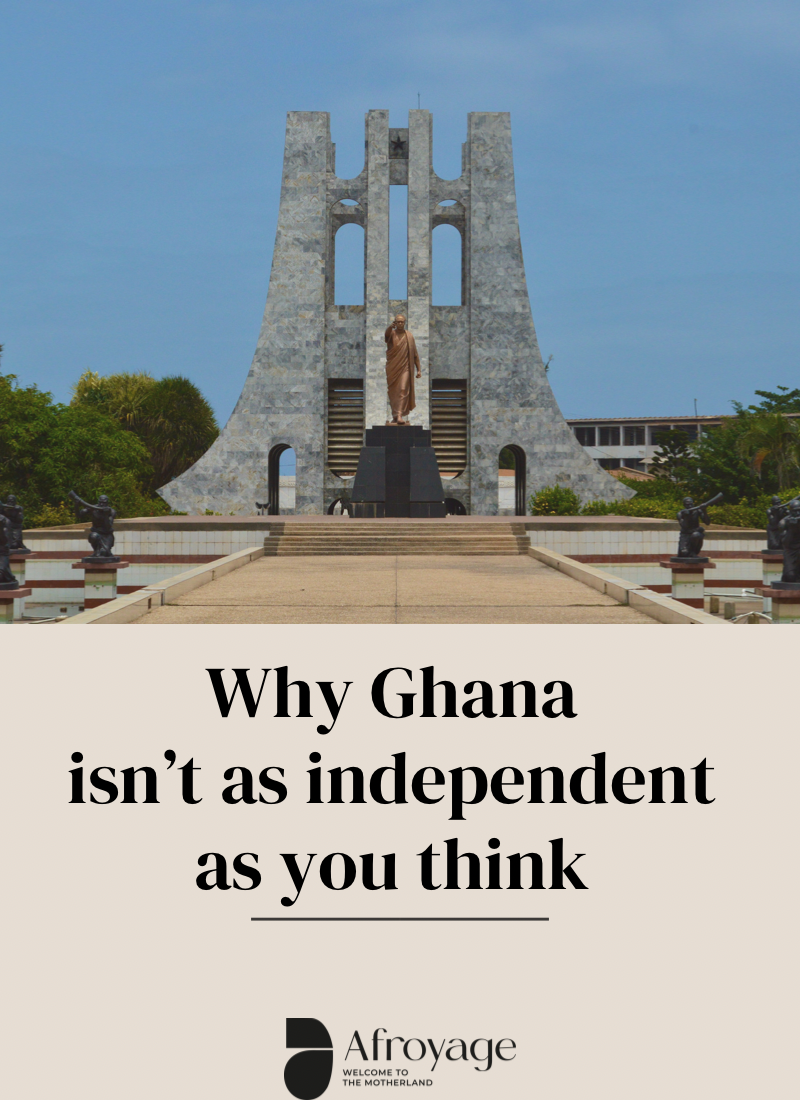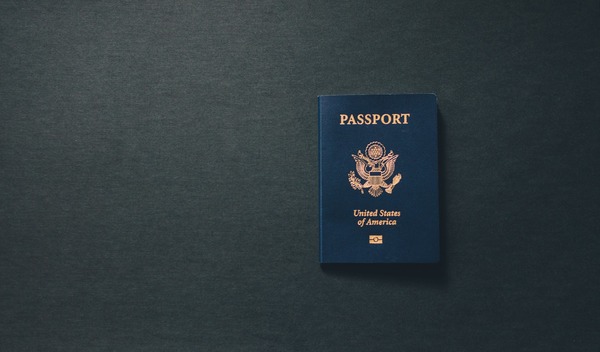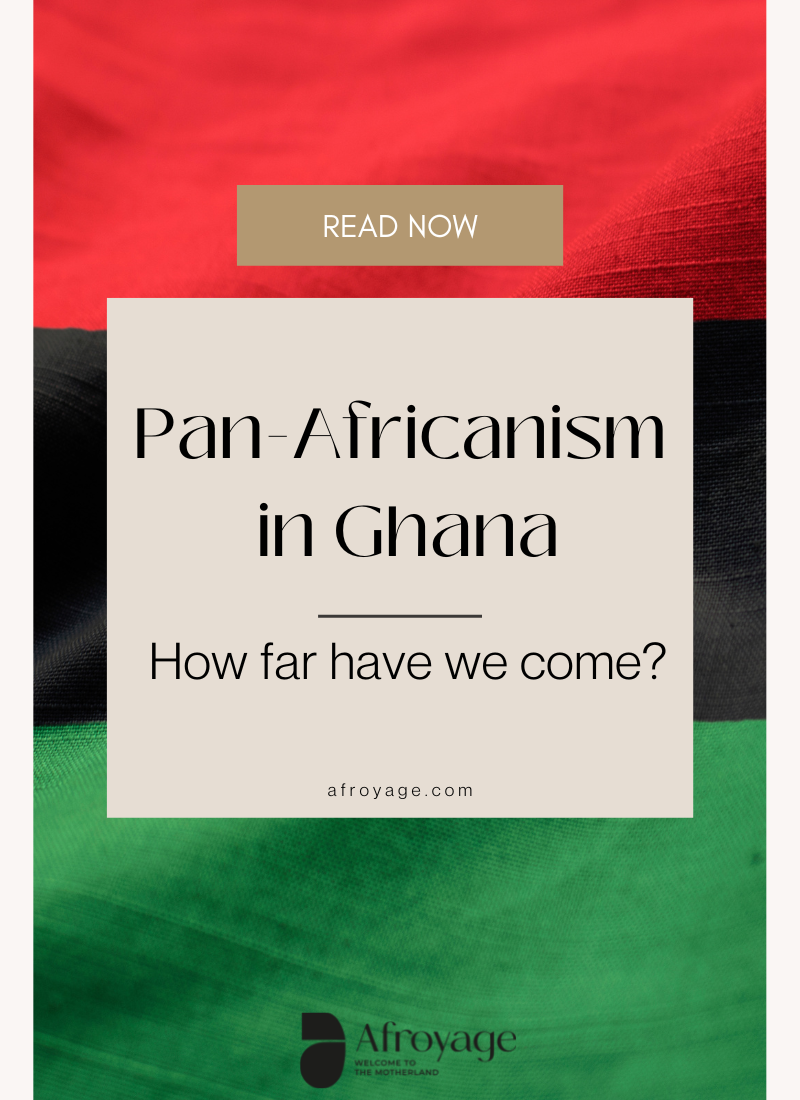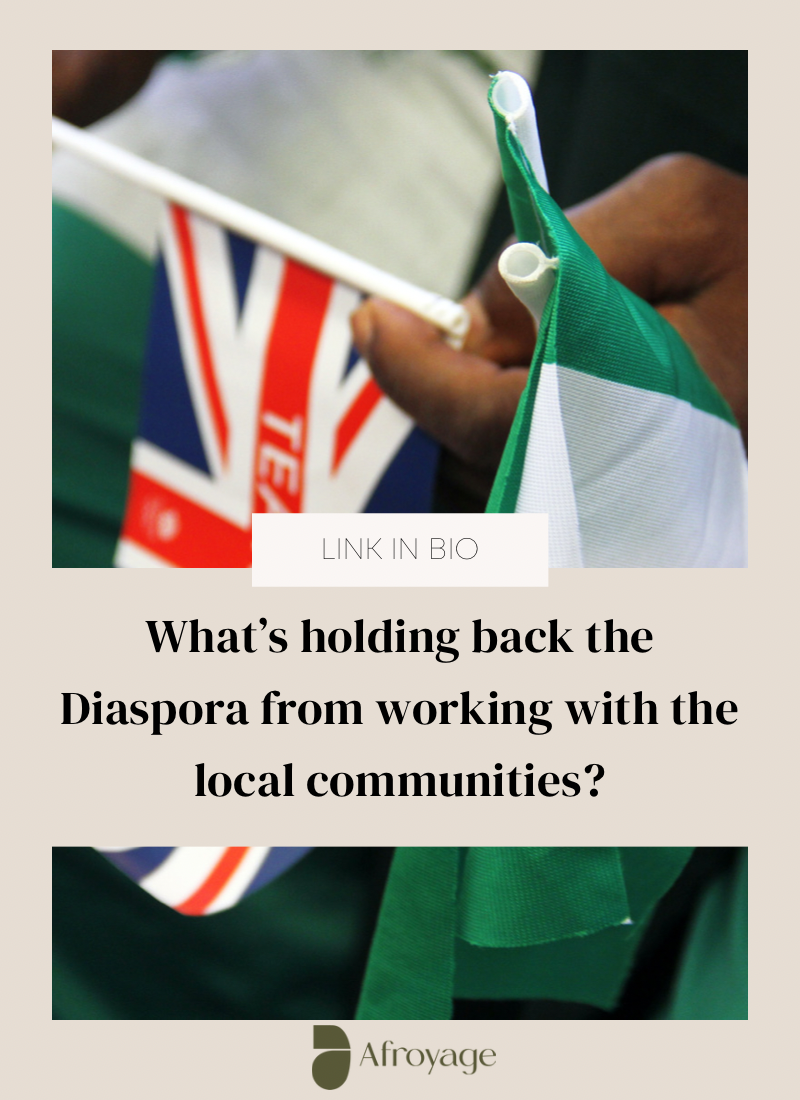Ghana is without a doubt one of the greatest countries in the world. It has emerged from a tumultuous and bitter past to become the united and beautiful state that it is today.
Despite all of the fun and beauty, the country has a few underlying issues that may prevent it from being as free and independent, as you may think it is.
Here are some reasons why Ghana isn’t as independent as you think.

There is heavy corruption in the country
You’ve probably heard about the numerous government officials arrested or charged with corruption.
You might be surprised to learn that some of them are still in power and have not been deposed. The charges brought against them are serious and have a direct impact on people’s lives.
Some involve financial mismanagement, embezzlement, and outright payment for favors.

All of these activities stifle development because funds intended for the benefit of the people remain in the hands of a few.
But these things aren’t checked and these people aren’t held accountable for their actions.
The country over-relies on foreign aid
Many governments rely on foreign aid in some form or another, but Ghana goes beyond mere dependence.
Because the government is unwilling to change, it is unwilling to work hard and be accountable.
Many Ghanaians see this as an excuse for government officials’ corruption and oppose foreign aid because it allows these officials to remain in power while doing nothing significant for the country.
The country is being controlled by external powers and bodies
External powers rule the country, and not just in the sense that we must follow their rules. Ghana is ruled by other countries in the sense that it is indirectly owned by them.
The IMF and World Bank (international financial institutions) assist in dictating their policies and ensuring loan repayment.
The World Trade Organization (WTO) monitors the country for trade regulations and tariffs. This means that there is an active interest for them to make sure that people that support them and their policies are in power.
That was put in place by these international organizations because they wanted someone who would do what they say without question.
When a country takes heavy loans and doesn’t pay them back and they have their hands tied and will pander to the whims and caprices of its donors.
Read more about reducing aid dependency here.
There are heavy restrictions on traveling outside Ghana
If you are from Ghana or another country and want to travel abroad, you will almost certainly need a visa to many countries.
However, not every country will easily grant visas to Ghanaians. Some countries require Ghanaian visitors to apply for visas even if they are going on vacation.
For example, the United States government requires all foreigners entering their borders (including those from Ghana) to have a valid passport issued by their home country’s government.

The Canadian government also requires all foreign visitors over the age of 16 who arrive in one of Canada’s ports on an international flight or by sea vessel to present proof of citizenship.
The South African Embassy has strict entry requirements for anyone entering South Africa without prior permission, such as birth certificates, marriage certificates, divorce decrees, police clearance letters issued within three months of the travel date, and immigration documents issued within three months of the travel date.

This is not to say that countries shouldn’t have any efficient mechanism to check people that enter, but for the sakes of easy flow of business, the swift nature of some issues there should be more ease for Ghanaians to travel around the world and there should be more countries that should ease visa laws for Ghanaians.
Many basic things in Ghana are imported
A significant portion of Ghanaian goods are imported. Everything from toothpicks and plates to tiles and furniture is imported from other countries.
A greater proportion of food is imported from outside the country. That is not to say that foreign foods aren’t tasty or nutritious; quite the contrary!

However, if you want to reduce your carbon footprint and support local businesses, you should reconsider your diet and think more about where all of the food on your plate comes from.
You might think that buying locally produced goods is just another way of saying “buy from farmers’ markets,” but in Ghana, this can mean something completely different, as things bought from local markets can still be imported goods as well.
There are numerous reasons why eating locally grown produce is important. For starters, it helps local economies by providing much-needed support to small farmers (who are often priced out by larger corporations).
By purchasing their products directly from them rather than through middlemen like Walmart or other big box stores, we keep money circulating within our communities rather than sending it overseas.
Additionally, people who live far away aren’t exposed as much as those here who work with chemicals sprayed onto crops, which could cause health problems later on if consumed regularly over time.
Loans are needed to pay for the imports
When Ghana imports goods from other countries, it must pay but because of the lack of readily disposable cash, it must take loans in order to import.
Loans are the most common method of paying for imports. Loans are an important part of international trade because they allow a country to purchase items that it otherwise would not be able to afford.
Most people would anticipate that another person or organization, such as a bank or credit union, would lend them enough money to allow them to pay for their purchase in instalments over time.
Many businesses operate in this manner as well: if they require more capital than what is currently available in their accounts (such as cash), they may take out a loan to purchase more inventory or equipment before selling all of their products and repaying those initial investments with interest (if necessary).
However, in Ghana and many other countries across Africa and beyond, there isn’t always enough money circulating in these economies, owing to differences in how developed nations function versus developing nations like ours here in Ghana.
As a result, lenders do not necessarily exist within these locations, but rather come from outside sources such as banks located abroad. Which means the country has lots of interests to pay on these loans.
The fight for independence is about more than just fighting a war or seizing control of the government. It is also about strengthening the economy, government, education system, and infrastructure.
We must first fight for our independence in order to be truly independent. Ghana requires a strong economy in order to feed itself and provide necessities such as housing and healthcare without relying on foreign aid or loans from other countries.
Click here to learn about the healthcare system in Ghana.
This could take the form of increased trade with other African nations; it could also take the form of improved access to farming equipment, allowing farmers to grow more crops per acre, increasing crop yield.
Finally, it could take the form of increased access to credit, allowing businesses to hire more workers, stimulating demand for goods at their stores and thus creating jobs (which leads us back around again).
Ghana has the potential to be a largely independent state; however, if we want independence, we must fight for it.





Leave a Reply
You must be logged in to post a comment.